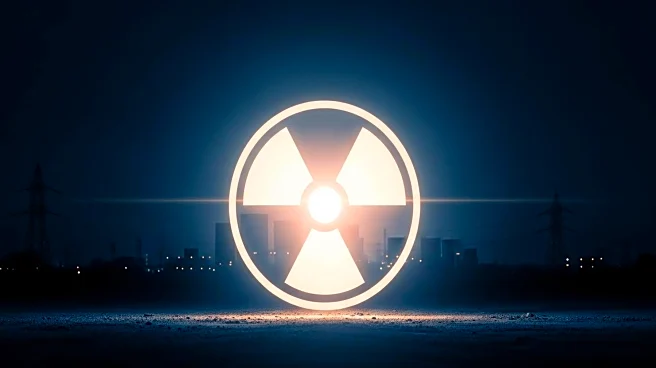What is the story about?
What's Happening?
The Zaporizhzhia nuclear power plant in Ukraine, under Russian control, has been operating on emergency generators for five consecutive days due to a power outage. This situation has raised significant safety concerns, as the plant relies on external power to maintain cooling and safety systems. The outage was caused by damage to the power transmission line, reportedly due to shelling by Russian forces. The International Atomic Energy Agency (IAEA) has expressed concerns about the potential for a nuclear disaster similar to Chernobyl. Meanwhile, Ukrainian President Volodymyr Zelenskyy announced a $90 billion arms deal with the United States, which includes a major weapons agreement and a separate drone deal. Zelenskyy also criticized Hungary for conducting intelligence-gathering drone activities over Ukraine.
Why It's Important?
The ongoing power outage at the Zaporizhzhia plant underscores the heightened risk of nuclear incidents in conflict zones, potentially affecting millions in Europe. The reliance on emergency generators, considered a last resort, highlights the precariousness of the situation. The arms deal between Ukraine and the U.S. signifies a deepening military collaboration, potentially altering the balance of power in the region. This development could escalate tensions with Russia and influence the geopolitical landscape. Additionally, Hungary's alleged drone activities could strain its relations with Ukraine and other NATO members, given Hungary's close ties with Russia.
What's Next?
The IAEA is likely to continue monitoring the situation closely, with potential diplomatic efforts to restore external power to the plant. The arms deal will proceed with technical meetings, and its implementation could lead to increased military capabilities for Ukraine. Hungary's actions may prompt diplomatic responses from Ukraine and its allies, potentially leading to further regional tensions. The situation at the nuclear plant remains critical, with ongoing risks of a nuclear incident if power is not restored.
Beyond the Headlines
The situation at the Zaporizhzhia plant highlights the broader implications of nuclear safety in conflict zones, raising questions about the adequacy of international safeguards. The arms deal reflects a strategic shift in U.S. foreign policy, emphasizing support for Ukraine's defense capabilities. Hungary's actions could lead to a reevaluation of its role within NATO, especially given its controversial stance on Russia. The developments could also influence public opinion on nuclear energy and military alliances in Europe.















